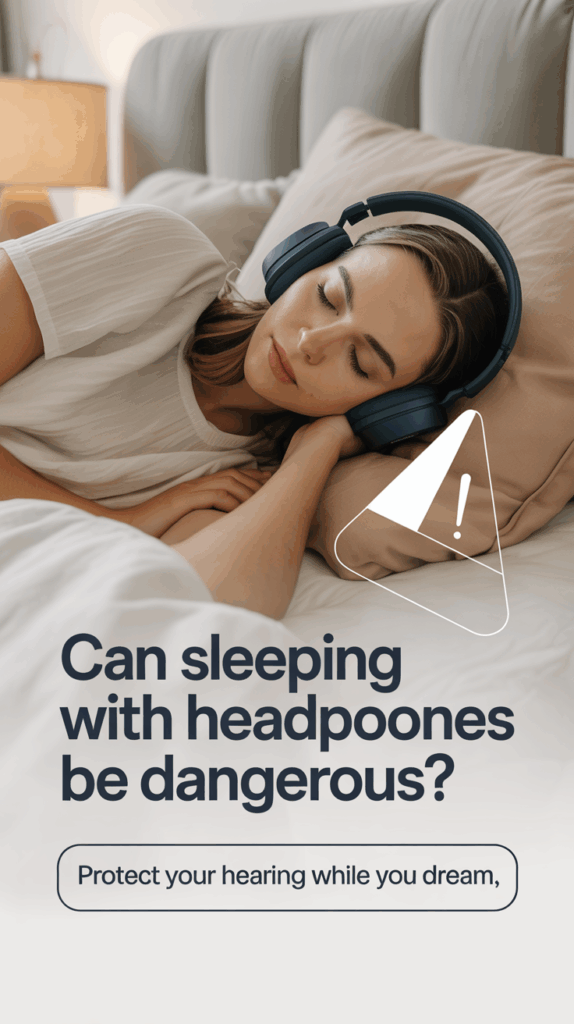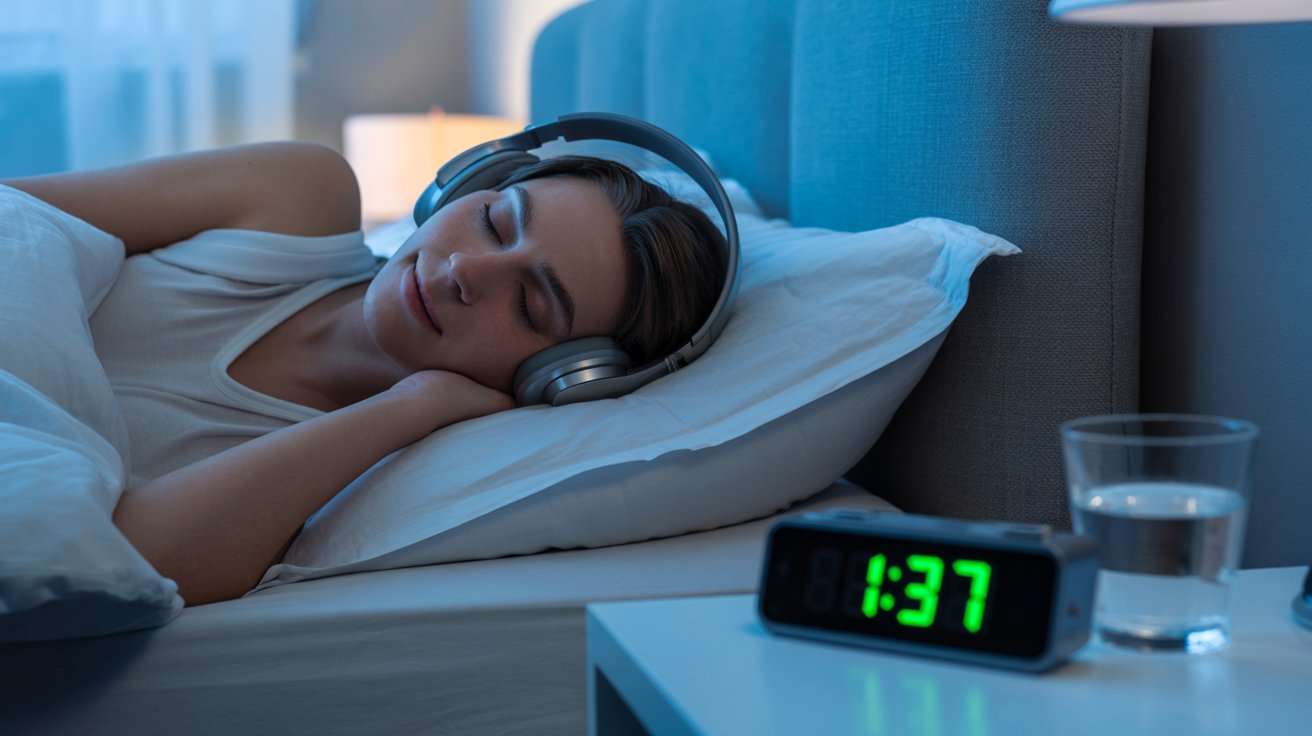Sleeping with headphones can be convenient for many people who use audio to relax, block noise, or improve their sleep quality. However, it carries potential risks that should be carefully considered and managed.
Overall, sleeping with headphones can be dangerous if done improperly, especially with high volume levels or poor choice of headphones. Taking proper precautions like keeping volume low, using sleep-friendly headphones, and maintaining ear hygiene can mitigate many risks and make sleeping with headphones safer.
Risks of Sleeping with Headphones
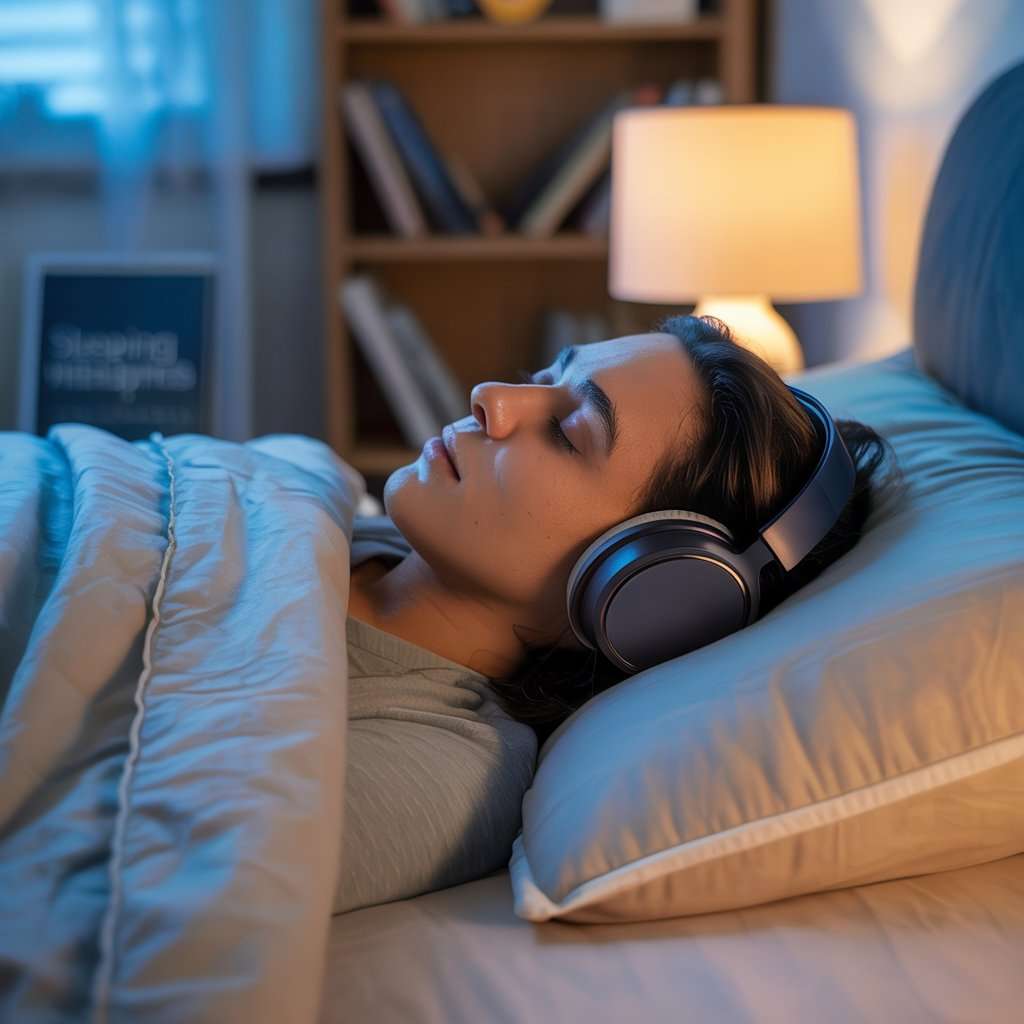
- Hearing Loss
Regularly exposing ears to sounds above 60-70 decibels for prolonged periods, such as during an entire night’s sleep, can cause noise-induced hearing loss over time. The longer the exposure and the higher the volume, the greater the risk. Even gentle, calming sounds at too high a volume can lead to hearing damage in the long term. - Ear Infections and Irritation
Wearing headphones or earbuds for extended hours — especially in-ear types — traps moisture and reduces air circulation in the ear canal. This creates the perfect environment for bacteria and fungi to grow, increasing the risk of ear infections like otitis externa. Continuous pressure from earbuds can also cause irritation or wounds in the ear canal. - Earwax Buildup
Headphones can block natural airflow around the ears, leading to excessive earwax compaction. This impacted earwax may cause discomfort, transient hearing loss, or tinnitus and may require medical removal. - Physical Discomfort and Pressure Injuries
Bulky or ill-fitting headphones can cause pressure sores or pain in and around the ears. Side sleepers particularly face discomfort because the headphone presses into the ear against the pillow. - Strangulation or Safety Hazards
Wired headphones pose a strangulation risk if the cable gets tangled around the neck or limbs during sleep. Also, noise-canceling headphones or earbuds can make users unaware of alarms or emergency sounds while asleep, potentially delaying response to dangerous situations.
Benefits of Sleeping with Headphones
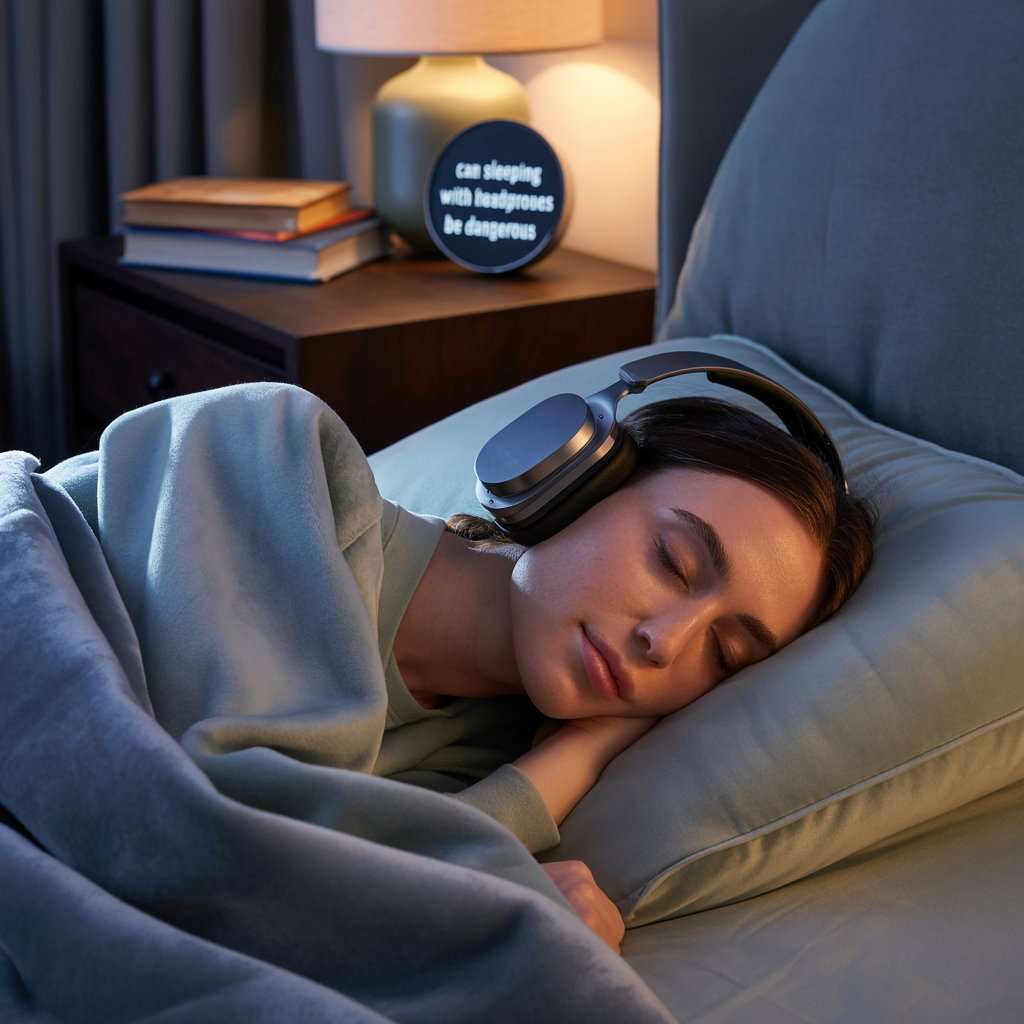
Despite risks, there are proven benefits when headphones are used sensibly for sleep:
- Noise Blocking and Sleep Improvement: Headphones can block disruptive noises—city sounds, snoring, traffic—that interfere with falling or staying asleep.
- Stress Reduction and Relaxation: Listening to soothing music or white noise helps lower heart rate and stress hormones, aiding relaxation and faster sleep onset.
- Sleep Disorder Aid: People with tinnitus or PTSD find relief using calming sounds at night, which mask bothersome internal or external noise.
- Enhanced Sleep Hygiene: Audio cues become part of a bedtime routine, signaling the brain to wind down and sleep better.
Tips for Sleeping Safely with Headphones
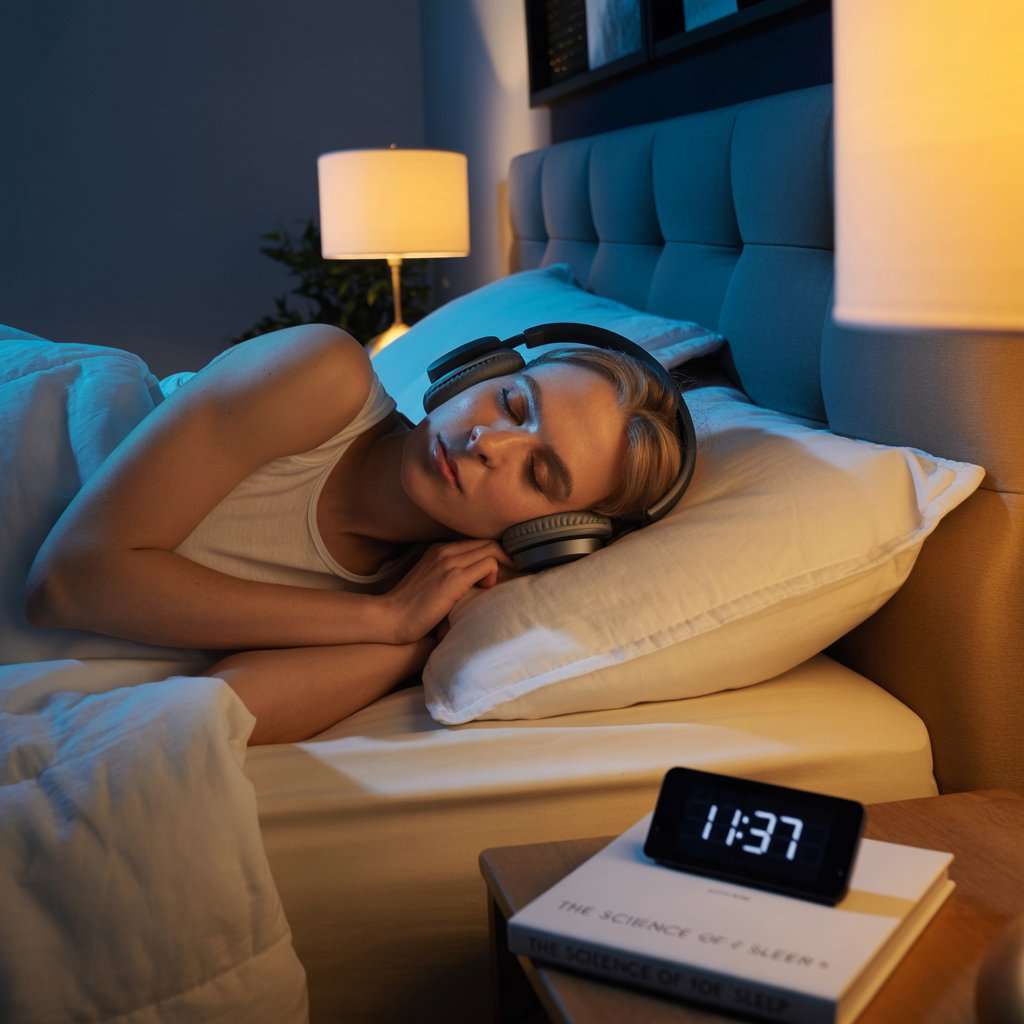
- Choose Sleep-Optimized Headphones: Pick earbuds or headband-style headphones specifically designed for sleeping. These have flat profiles, soft materials, and breathable designs that minimize ear pressure and discomfort.
- Keep Volume Low: Set volume to 60% or less (~70 dB or below) and use built-in sleep timers on music apps to avoid playing audio all night. Avoid loud or bass-heavy sounds.
- Limit Usage Duration: Avoid continuous use for multiple hours. Limit sessions to the time it takes to fall asleep (usually under 3 hours).
- Avoid In-Ear Earbuds If Possible: Opt for over-ear or on-ear headphones or soft headband speakers to reduce moisture buildup and ear canal irritation. If using earbuds, ensure a comfortable fit without pushing deeply.
- Maintain Hygiene: Clean headphones and ears regularly to prevent bacteria buildup and infections. Allow ears to breathe when not using headphones.
- Stay Aware of Safety: Do not use active noise-canceling headphones at night to remain alert to emergency alarms or calls. Consider wireless options to eliminate strangulation risk from cables.
- Use a Pillow Designed for Headphone Users: Pillows with side cutouts or headphones designed to be low-profile will help side sleepers reduce pressure and discomfort.
Frequently Asked Questions
1. Can sleeping with headphones cause permanent hearing damage?
Yes, exposure to high volume audio for long periods while sleeping can cause noise-induced hearing loss over time. Keeping volume low helps reduce this risk.
2. Are wireless headphones safer to sleep with than wired?
Wireless headphones reduce strangulation hazards since there is no cord to get tangled. However, ear health risks due to moisture and volume still apply.
3. Is it okay to sleep with earbuds inside the ears?
In-ear earbuds can trap moisture and cause ear infections; they may also irritate the ear canal. Using sleep-friendly earbuds or headband headphones is safer.
4. How can I avoid discomfort when sleeping with headphones?
Use headphones designed for sleep, keep volume low, avoid deep ear insertion, and use pillows with headphone cutouts or soft cushioning.
5. Does listening to music with headphones improve sleep?
Yes, low volume soothing audio can improve sleep quality by masking disruptive noise and creating a relaxing environment.
Conclusion
Sleeping with headphones is not inherently dangerous, but it carries risks that must be managed through smart choices and habits.
Selecting the right headphones designed for sleep, maintaining low volume, practicing good hygiene, and being aware of potential safety concerns can allow most people to benefit from the relaxation and noise-blocking advantages without harm.
If used responsibly, headphones can be a valuable tool for better sleep, but continuous, high-volume use or improper devices can lead to ear damage and discomfort. Always prioritize ear health and safety when incorporating headphones into a bedtime routine.
